Table of Contents
Introduction
Facility management is the practice of coordinating and managing the physical workplace to ensure smooth operations within an organization. It directly affects how well things work and how productive people can be.
Facility management companies are essential for supporting business success. They have specialized services and knowledge that ensure every part of the physical workspace operates at its best. These companies handle everything from basic upkeep to complex security measures, allowing businesses to continue their operations without any disruptions.
1. Understanding Facility Management
Facility management involves coordinating and managing the physical workplace with the people and work of an organization to ensure optimal functionality. It encompasses a broad range of activities designed to maintain a productive and safe environment.
Types of Facility Management
Operational Management: Involves day-to-day operations to keep the facility running smoothly.
Maintenance Management: Focuses on maintaining equipment and infrastructure to prevent breakdowns.
Space Management: Deals with the efficient use of space within the facility.
Facility management includes both tangible elements (like buildings and equipment) and intangible elements (like safety protocols and energy optimization). Effective facility management not only enhances operational efficiency but also contributes to employee satisfaction and safety within the workplace.
Hard vs. Soft Facility Management
Hard Facilities Management: Includes tasks related to building maintenance, HVAC systems, electrical works, security services, and other physical components. Example: RDS offers comprehensive building automation and maintenance services, ensuring all physical assets are well-maintained.
Soft Facilities Management: Encompasses space planning, environmental sustainability practices, housekeeping, and other non-technical services. Example: RDS’s housekeeping services contribute significantly to creating a clean and healthy work environment.
Diverse Responsibilities
Facility management covers various responsibilities:
Maintenance Strategies: Preventive maintenance ensures that equipment remains functional, minimizing unexpected failures. Example: RDS’s preventive maintenance strategies enhance equipment longevity.
Energy Optimization: Implementing energy-efficient solutions reduces costs and supports sustainability efforts. Example: RDS focuses on energy management practices that align with corporate social responsibility goals.
Safety Protocols: Ensuring workplace safety through comprehensive security measures and compliance with regulatory standards. Example: RDS provides well-equipped guarding services including fire drill/evacuation services to enhance safety.
2. The Crucial Benefits Brought by Facility Management Companies
Facility management companies offer a range of services that streamline operations, leading to significant operational cost reductions through efficient resource allocation and maintenance practices. These companies employ strategic approaches to minimize expenses related to maintenance, energy waste, and emergency repairs. For instance, proactive maintenance strategies reduce the likelihood of costly breakdowns and extend the lifespan of equipment.
Creating a well-maintained and organized work environment enhances employee productivity, allowing staff to focus on their core tasks without distractions. A clean and orderly workspace not only boosts morale but also minimizes downtime caused by maintenance issues. Sustainable initiatives such as energy-efficient lighting and HVAC systems contribute to a healthier work environment, further enhancing employee satisfaction.
Facility management also ensures improved safety and compliance, helping businesses meet regulatory standards and reducing the risk of costly fines or legal issues. Comprehensive security measures, including well-equipped guarding services and regular fire drills, create a secure environment for employees and visitors alike.
Cost-saving Opportunities through Efficient Operations
Preventive Maintenance: Regular upkeep of equipment prevents unexpected failures, thereby avoiding high repair costs.
Energy Optimization: Implementing energy-efficient solutions reduces utility bills.
Emergency Preparedness: Proactive measures lower the frequency and impact of emergency repairs.
Enhancing Work Environment for Optimal Performance
Well-Maintained Spaces: Clean and organized facilities contribute to higher employee morale.
Sustainable Practices: Energy-efficient systems promote environmental responsibility.
Security Measures: Robust security protocols ensure a safe workplace.
Facility management companies play a pivotal role in ensuring that businesses operate smoothly and efficiently. Their specialized services not only lead to cost savings but also create environments where employees can thrive, ultimately contributing to business success.
3. Key Areas of Focus in Facility Management Services
Facility management services are comprehensive, addressing multiple facets essential to maintaining a productive and efficient business environment.
Building Maintenance
Building maintenance is crucial for keeping facilities functional and safe. Regular upkeep prevents costly repairs and reduces downtime. By implementing preventive maintenance strategies, you can enhance equipment longevity, minimize unexpected failures, and contribute to overall operational efficiency.
Routine Inspections: Regular checks help identify potential issues before they escalate.
Scheduled Repairs: Timely interventions prevent minor problems from becoming major disruptions.
Maintenance Logs: Keeping detailed records aids in tracking performance and planning future maintenance activities.
Energy Management and Sustainability
Energy efficiency and sustainable practices are not only beneficial for reducing operational costs but also support corporate social responsibility initiatives. Implementing energy-efficient solutions aligns with both financial and environmental goals.
Energy Audits: Assessing current energy usage to identify areas for improvement.
Sustainable Practices: Incorporating renewable energy sources, like solar panels or wind turbines.
Energy-Efficient Equipment: Upgrading to devices that consume less power without compromising performance.
Security Services and Workplace Safety
Security measures are vital for protecting both physical assets and human resources. A comprehensive approach to workplace safety ensures a healthy environment, reducing the risk of accidents and enhancing employee well-being.
Access Control Systems: Limiting entry to authorized personnel enhances security.
Surveillance Systems: Continuous monitoring helps deter and detect unauthorized activities.
Safety Protocols: Establishing emergency procedures and conducting regular drills ensure preparedness.
Facility management companies like RDS offer a wide range of specialized services covering these core areas:
Housekeeping: Ensuring cleanliness across all workspaces.
24/7 Security: Providing round-the-clock protection with professionally trained guards.
Electrical Works: Maintaining electrical systems to avoid disruptions.
Building Automation: Integrating smart technologies for efficient building management.
Engineering Services: Including HVAC maintenance, plumbing, carpentry, and more.
These services create a holistic approach, ensuring every aspect of facility management is addressed comprehensively. This integrated strategy helps businesses maintain a seamless operation while focusing on their core tasks.
4. Leveraging Technology for Effective Facility Management
Technology plays a crucial role in facility management nowadays. With the emergence of advanced software solutions and IoT devices, facilities are being operated in a completely different way.
Key Technologies
Integrated Workplace Management System (IWMS): This platform brings together various functions such as space management, maintenance scheduling, and energy monitoring into one user-friendly interface, making operations smoother.
Computer-aided Facilities Management (CAFM): CAFM systems help with effective asset management, maintenance tracking, and space utilization. They provide real-time data for making well-informed decisions.
IoT Devices: Sensors and smart devices are used to keep an eye on things like environmental conditions, equipment status, and occupancy levels. This information is valuable for predicting maintenance needs and optimizing resource allocation.
Applications
Space Utilization Tracking: Sensors are used to measure how workspaces are being utilized, allowing for better allocation of space.
Maintenance Automation: Automated systems take care of scheduling and monitoring maintenance tasks, minimizing downtime.
Data Analytics: Advanced analytics tools offer insights into energy usage patterns, making it easier to identify areas where cost savings can be made.
By embracing these technologies, facility managers can:
Improve operational efficiency
Reduce costs
Enhance overall workplace functionality
5. Embracing the Future: Trends and Opportunities in Facility Management
Trends in facility management are changing the industry, driven by new ideas and evolving business needs. One major trend is the increase in flexible workspaces and smart buildings that adapt to changing work environments. These spaces use advanced technology to make the best use of space, save energy, and work more efficiently.
Facility management companies are now playing a bigger role in helping their clients innovate. They are doing this by using the latest technologies like IoT devices and AI-powered maintenance systems. This helps businesses stay ahead of the competition. They also help with implementing sustainable practices, which is important for meeting environmental goals.
Areas for Growth and Diversification
Specialized consultancy services: Offering expertise in sustainable design to help businesses create eco-friendly workspaces.
Predictive analytics for maintenance planning: Using data to predict when equipment might break down and scheduling maintenance before it happens. This reduces downtime and saves money on repairs.
Enhanced security solutions: Using advanced surveillance systems and access control technologies to make sure workplaces are safe for everyone.
These trends and opportunities show how facility management companies are becoming more important for running businesses smoothly and coming up with new ideas.
Conclusion
Facility management companies play a crucial role in enhancing operational efficiency, allowing modern businesses to focus on their core activities. By partnering with experts like RDS Facility Management Services, businesses can ensure compliance with regulations and industry standards.
The strategic management of facilities not only reduces costs but also contributes to a healthier and more productive work environment for employees. This comprehensive approach includes:
Building Maintenance: Regular upkeep and preventive strategies to avoid costly repairs.
Energy Management and Sustainability: Implementing energy-efficient solutions aligned with financial and environmental goals.
Security Services and Workplace Safety: Ensuring comprehensive security measures and maintaining a safe work environment.
Facility management companies in Hosur provide significant cost savings and improved employee well-being through their comprehensive services and ability to create optimal work environments. Partnering with RDS Facility Management Services can contribute to long-term stability in a rapidly changing world.
Experience the difference that expert care and strategic maintenance bring. Our specialized services, from routine building upkeep to advanced energy management and robust security protocols, ensure your workspace operates seamlessly, allowing you to focus on your core business. Team up with RDS and create a healthier, safer, and more productive environment for your team. Contact us now to get a free quote!



